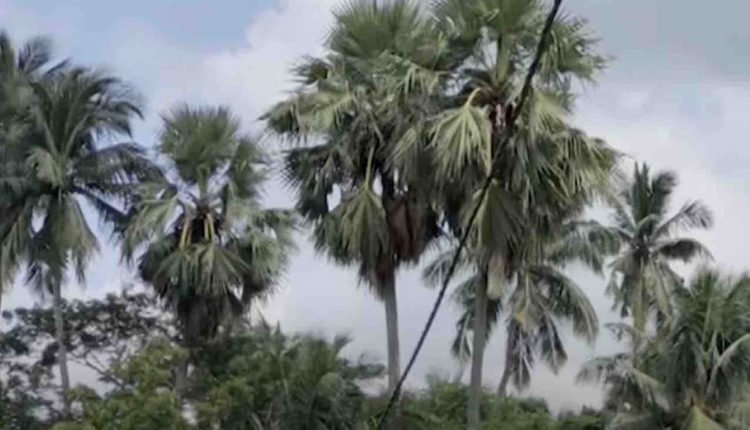Odisha To Plant Palm Trees To Mitigate Lightning Strikes
Days after 12 people were killed in Odisha during extreme thunderstorm and lightning activity, Special Relief Commissioner Nikunja Bihari Dhal on Friday directed Forest and Agriculture departments to undertake massive palm tree plantation in reserve forest areas and other vulnerable districts as a lightning mitigation measure.

Bhubaneswar: Days after 12 people were killed in Odisha during extreme thunderstorm and lightning activity, Special Relief Commissioner Nikunja Bihari Dhal on Friday directed Forest and Agriculture departments to undertake massive palm tree plantation in reserve forest areas and other vulnerable districts as a lightning mitigation measure.
During an inter-departmental meeting, he issued the order for disaster-resilient projects to be undertaken under the Disaster Mitigation Fund.
Environmentalists and weather specialists in the state had previously expressed alarm about the state's declining amount of higher trees, such as palms, that guard against lightning, which reportedly claimed 281 lives in rural regions between 2021-22. "Palm trees tower over coconut trees."
Lightning strikes trees on and near farmlands, safeguarding farmers who labor until late in the afternoon during heavy rain, thunderstorms, and lightning. "They are now being killed in such strikes because palm trees are no longer present," said senior meteorologist Umasankar Das.
Because of its height, the palm tree functions as a lightning conductor during storms, lowering the chances of being struck by lightning.
According to environmentalist Biswajit Mohanty, who wrote to the principal chief conservator of forests (wildlife) about it, large-scale palm tree felling has been observed in Keonjhar district's Telkoi range, as well as Dhenkanal and Angul forest divisions.
In 2018, the Forest department had sent advisories to all regional chief conservators of forests and divisional forest officers to promote palm tree plantation along state and national highways, along the boundaries of villages, reserve forests and farms, he said, adding that the villagers were also advised to use seeds of the palm fruit and plant them along the cultivable lands.
The initiative, however, did not fetch the desired results.
Palm tree plantation, which was part of a custom, was discontinued in villages, where it acted as fence in farm houses and protected people from lightning, due to urbanisation and infrastructure development. Palm trees not only prevent lightning strikes but also protect coastal areas from storms and cyclones. Roots of these trees also save flood-protection embankments against soil erosion. Palm fruits are the only wild fruit available during the rainy season, sources said.
Claiming that over 4,000 people have lost their lives to lightning strikes in the state in the last 20 years, the Odisha government has also submitted a proposal to the Centre to declare lightning as a ‘natural disaster.





 user1
user1 









